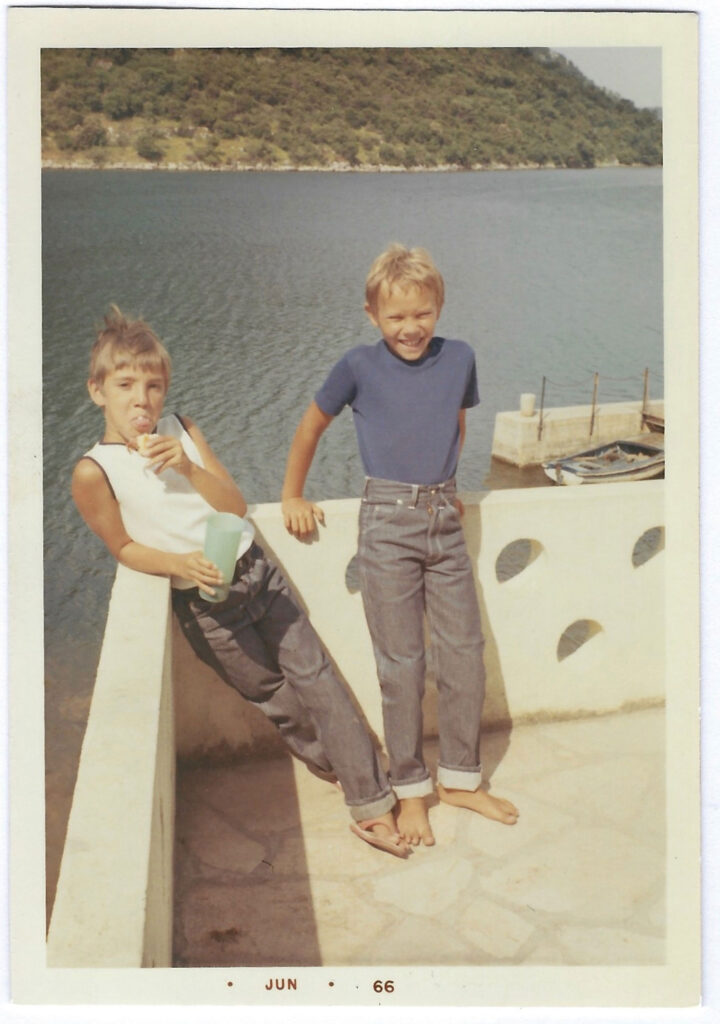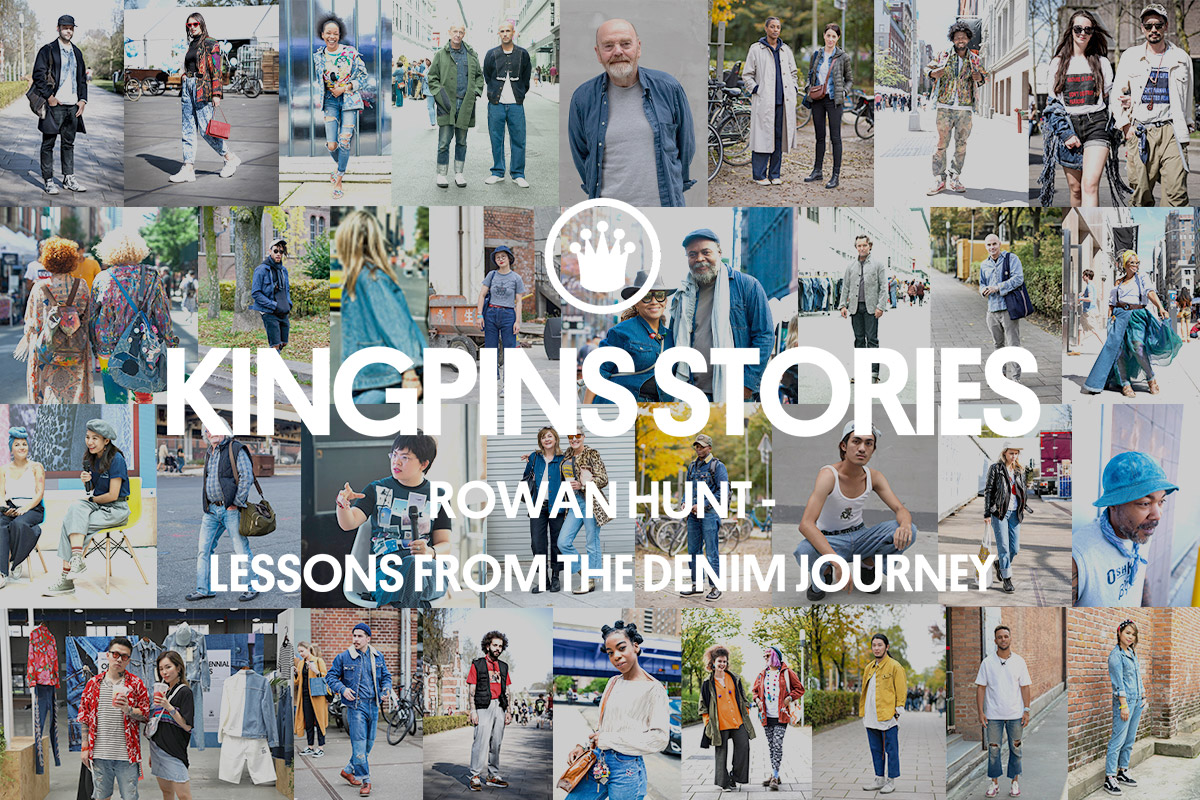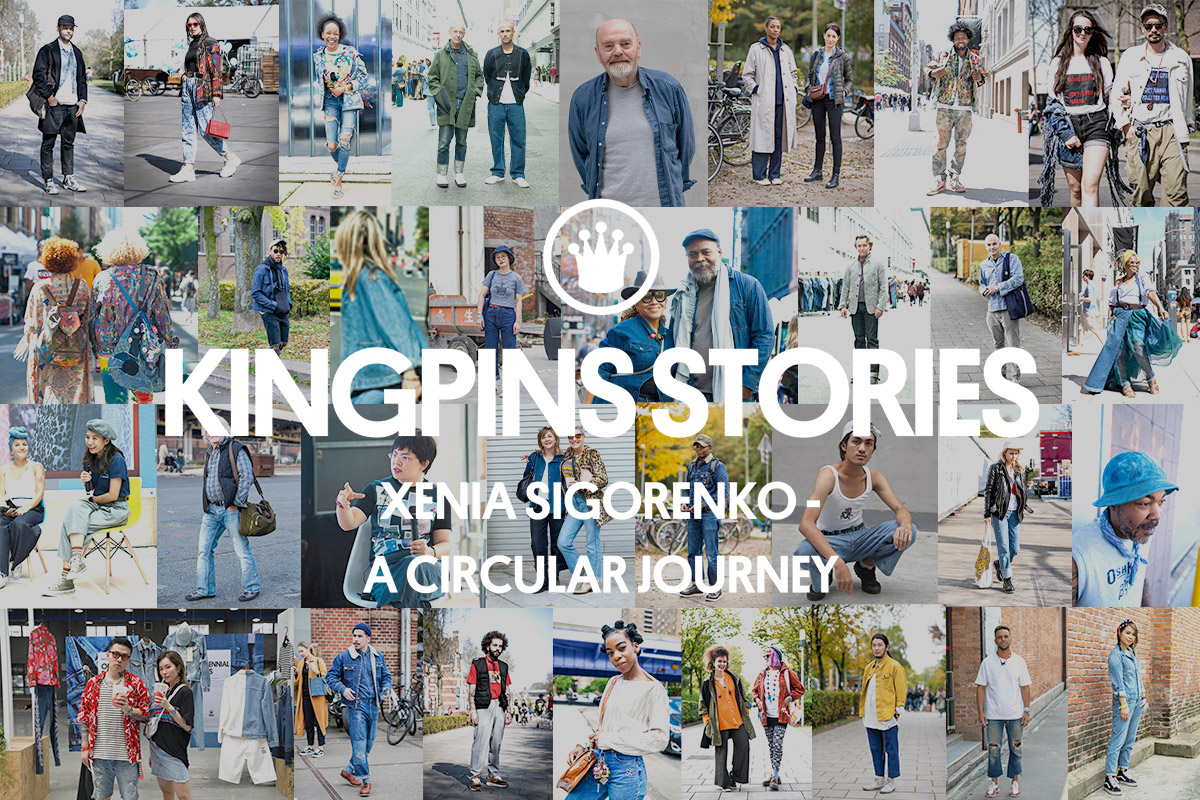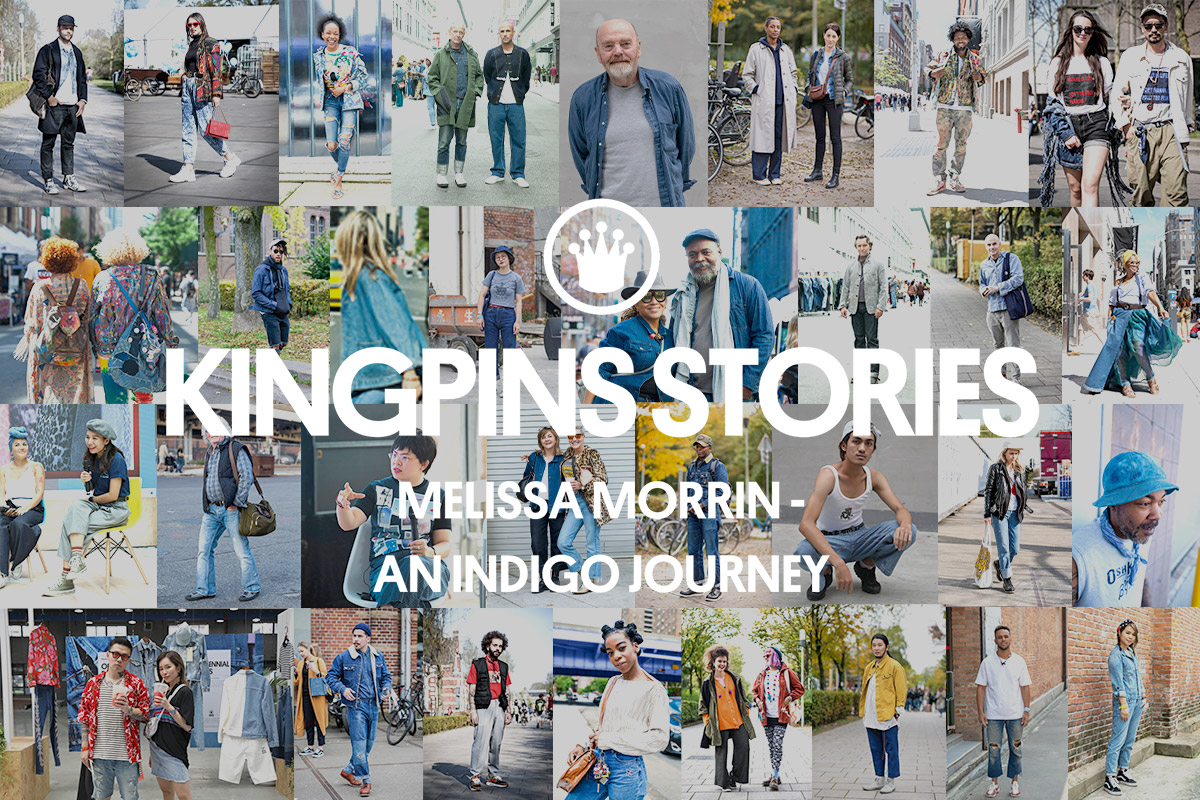Kingpins Stories: Piero Turk – Blue is the Color of Workers
Designer, innovator and life-long denimhead Piero Turk says cultivating a successful denim future requires understanding the industry’s roots.
Piero Turk’s life-long love affair with denim and jeans dates back to the early 1960s in his native Italy, when a family friend living in the U.S. would bring “American things” back for friends and family. For Turk and his brother, that meant jeans — a distinctly American product none of their classmates had.

Turk’s mother was a tailor, who opened one of the first jeans stores in Italy with Adriano Goldschmied. Because it was not easy to find trendy jeans in Italy at the time, they produced their own. Turk himself began working with Goldschmied in 1983, leaving his medical studies behind in favor of a crash course in denim production, immersing himself in everything from driving vans to going to sewing factories and laundries to product development and sales.
Goldschmied opened his design studio in 1987 and Turk joined him as partner a few years later. Together, they worked for many of the most important jeans brands around the world and had the opportunity to meet many of the denim industry’s key players.
Turk opened his own design studio in 2000, where consults for denim brands, jeans manufacturers, laundries and denim mills located around the world in Italy, Japan, USA, Turkey, the Netherlands, the U.K., Morocco and Bangladesh. Through his work, Turk helps companies develop their collections by giving them ideas to help them to be successful.
“We are delighted Piero Turk, one of the denim industry’s legendary design heroes, has agreed to share his story with Kingpins,” said Kingpins Founder Andrew Olah. “We hope you enjoy it as much as we do. The secret to life is to pay attention. Piero reminds us of that.”
I have traveled many times to Bangladesh to help companies develop their denim collections to present to clients.
I help create washes and adapt trends to each client’s taste and product directions. Many new and original ideas come from our teamwork and the blending of innovations and our aesthetics.
Every time I am there, I am fascinated by the colors I see. In Bangladesh, there are amazing hand-painted buses waiting to take the workers home from the factories. It’s a competition among the buses to have the most attractive and beautiful art. I love them.
I also spend time observing the stray dogs around. I love dogs and I work with dogs as a trainer, as well. I watch how the dogs in Bangladesh move, how they interact with people and the environment. It is extremely interesting. They know perfectly how to behave, what they have to do to survive. Then I compare them with the civilized, “domestic” dogs back home, who are totally unable to be independent. I think we are making the life of our pets like a jail where they depend completely on us. They don’t have the freedom to make their own choices and their own mistakes. Being mentally and physically caged, they are unable to develop their full potential and personality.
Often in Bangladesh, I will be outside the factory at the shift change and I see hundreds of women emerge wearing their colorful, beautiful, traditional dresses. It’s an explosion of colors —pink, green, yellow, purple. It’s also an explosion of voices — a kind of sparkling soundtrack. They are tired but happy. Happy because they are going home, socializing, chatting, laughing. But also happy because they have an important role for their families and for the society. They are proud of that and their life is enriched by that. They are proud workers making our jeans. Seeing them always gives me a boost of nice feelings.
They are the base of our industry, an industry that was born to produce garments for workers. Denim was the fabric of workers. Workers who had to fight for their rights and their dignity. Their fights were the starting points of our society, our democracy.
Then Covid came — along with consequences that affected everybody. Big buyers, retailers, companies started to cancel their orders; not accepting deliveries of goods already produced and shipped; not feeling committed to pay for orders already placed with vendors who already had all the materials in house to start production. All these unethical behaviors forced many companies to close factories or cut employment, unable to pay salaries. There was no protection for workers.
I think about those women leaving the factory in their brightly colored dresses and how they have been affected by the pandemic. It makes me really sad to think of what they have lost. They have lost their small salaries; but even more than that, they have lost their role, their position in society.
These cynical acts from buyers had a tremendous impact on the lives of thousands of poor people, poor workers, changing everything drastically for them. These behaviors — often from companies that talk about their efforts to promote sustainability, curb pollution and conserve energy and water — caused a dramatic shift in workers’ lives.
So I think our industry should focus on being sustainable for humans, as well. What is the point of reducing pollution but making workers starve without any hope for their future and the future of their families and their kids?
And if our industry really loves denim, it should pay respect to denim’s history, which is deeply rooted in workers’ history.
I dream of a future with denim that is non-polluting, does not waste resources and respects the people who produce it.


